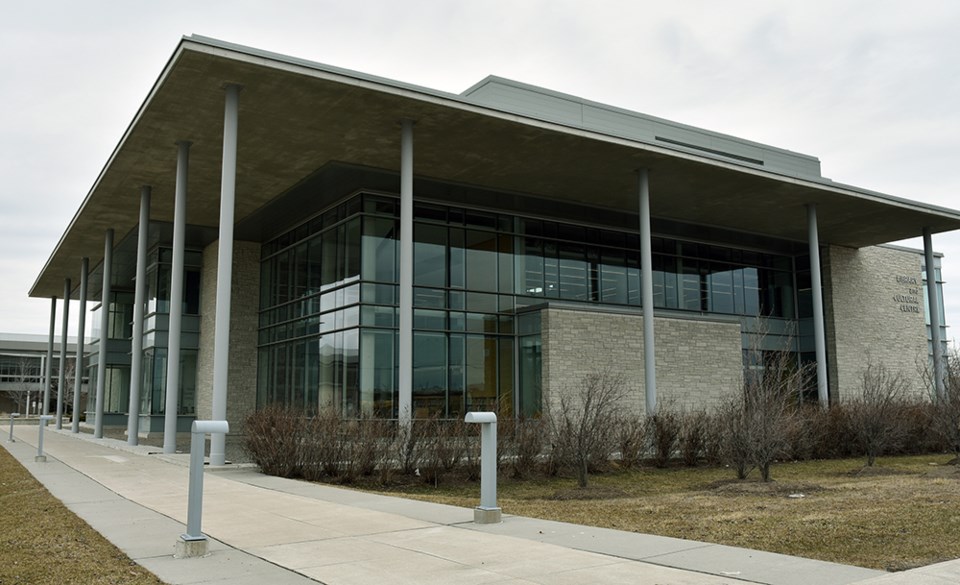The County of Simcoe is looking to close the book on its current library system and Bradford West Gwillimbury council wants more information before turning the page.
The county sent letters to each municipality and each library board at the beginning of June outlining the establishment of Information Library Service (ILS) and transitioning away from the Simcoe County Library Co-operative.
That letter was an item of correspondence on the June 21 Bradford West Gwillimbury council agenda. The town’s library board met the night before to discuss the matter as well.
The ILS would “focus its services on providing Software as a Service (SaaS) to existing Simcoe County libraries,” the letter stated, adding the county would assume existing licensing costs and project-management costs, while the “available assets and resources of the Simcoe County Library Co-operative (would) be distributed to the municipal libraries.”
County council adopted the resolution to form the ILS at its April 26 meeting. Consulting firm KPMG first presented its findings to county council in October, providing three options:
- Option 1: Maintain a modified status quo
- Option 2: Multiple union boards in the county
- Option 3: Simcoe County would establish a county library with all lower-tier municipal libraries
Option 3 was the recommendation from KPMG, which county councillors first debated last fall before deferring. The consultant suggested a county-operated library system would be more efficient than the current local library systems in place in each municipality to the tune of about $3 million annually.
But money saved by the county doesn’t translate into money saved by the municipality.
“This isn’t going to result in any real savings,” said Coun. Jonathan Scott. “It is a simple matter of fact — and of math — that this is a download and a cut by the county that local library boards and local taxpayers will have to compensate for.”
The library board was equally unimpressed.
“This is, all the way around, a terrible decision by the county,” said Jennifer Harrison, chair of the library board.
In her comments to council, Harrison paid particular note to the changes being an issue for new immigrants to Simcoe County.
The county’s letter indicated “library boards know their communities and demographics,” which was interpreted by Scott, Harrison and Coun. Raj Sandhu as giving less diverse communities in Simcoe County than Bradford West Gwillimbury an out in having their libraries be the inclusive, welcoming places in the community they’re meant to be.
“I feel, with this decision, that the south Simcoe side of the municipalities are getting punished because we (have) the most diverse communities,” said Sandhu, who sits on the library board with Scott and Coun. Mark Contois. “We’re getting the cutbacks for multilingual books, video, equipment and other educational material.”
Sandhu, like Scott, is all for finding cost savings, but not on the back of an institution that can promote diversity and help unite communities.
One of the ways the co-op worked previously, Scott explained, was to pool resources and purchase services in bulk, such as digital items and other information technology. That wouldn’t exist under the ILS.
Scott did not pull punches in his commentary, chastising the county for trying to find savings in the library budget, as opposed to tackling issues that might make a difference to the bottom line, such as the make-up of the council being too large.
Deputy Mayor James Leduc, who sits on county council with Mayor Rob Keffer, made no excuses for the actions his colleagues took in voting to dissolve the co-op and introduce the ILS, a move they voted against.
“It’s just a tragedy to go after the smallest budget up there,” Leduc said, referring to the library budget in the context of the approximately $500-million county budget. “This is impacting Bradford and Innisfil the most. We are the two big libraries and it has isolated us from the rest.”
The letter sent by the county set a deadline of July 10 to make a decision as to whether the municipality would be a member of the ILS. The library board deferred its decision and instead requested a delegation from the county to explain the new system, how it’s going to work and elaborate on some of the financial unknowns.
“It’s hard to make a decision when there’s no one there to explain or answer legitimate questions,” Scott said.
— With files from Jessica Owen
